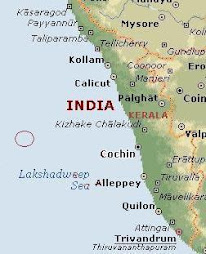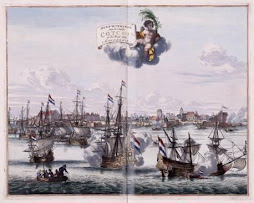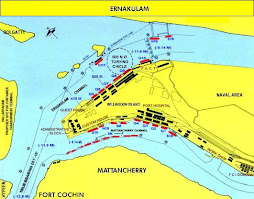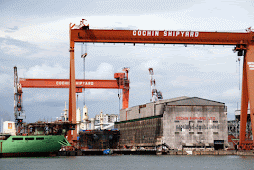(V.M.
Syam Kumar LL.M., Advocate, Kochi)
The
parties are bound by the terms of the bill of lading and also the forum which
they have chosen for entertaining any case in connection with the dispute
relating to the transaction between them. Holding thus the Subordinate Judge,
Kochi has vide Order dtd. 24.01.2017 directed return of the plaint to the plaintiff
for presentation before proper court having jurisdiction. The Learned Sub-
Judge had been following the judgment of the Hon’ble Supreme Court of India
reported in 1990 (3) SCC 481 and AIR 2003 SC 1177.
Plaint
was filed before the Subordinate Judge, Kochi by a purported owner of the goods
seeking recovery of certain amounts from the carrier for alleged breach of
contract of carriage evidenced by a Bill of lading issued at Kochi. The port of
loading was Kochi, India and the port of discharge was Valencia.
Since
the defendant carrier in its written statement raised the preliminary objection
of jurisdiction, the learned sub-judge proceeded to consider the said question
at the threshold before proceeding to trial.
The relevant clause (Clause 26) in the
Bill of lading pertaining to jurisdiction read as follows:
Whenever
clause 6.2(d) and /or whenever USCOGSA applies whether by virtue of Carriage of
Goods to and from the United States of America or otherwise, that stage of the
Carriage is to be governed by United States law and the United States Federal
Court of the Southern District of New York is to have the exclusive
jurisdiction to hear all disputes in respect thereof. In all other cases,
this bill of lading shall be governed by and construed in accordance with
English law and all disputes arising hereunder shall be determined by the
English High Court of Justice in London to the exclusion of the jurisdiction of
the courts of another country.
The Hon’ble Supreme Court has unequivocally
laid down the law with respect to the transfer of rights under a bill of lading
by holding in British India Steam Navigation Co. Ltd. V. Shanmughavilas Cashew
Industries (1990) 3 SCC 481 as follows: “A bill of lading is intended
to provide for the rights and liabilities of the parties arising out of the
contract of affreightment. If
the consignee claims the goods under a bill of lading he is bound by its terms. The bill of lading is the symbol of
goods and the right to possess those passes to the transferee of the bill of
lading. In other words, its transfer is symbolic of the transfer of the goods
themselves and until the goods have been delivered, the delivery of the duly
endorsed bill of lading operates as between the transferor or transferee, and all
who claim through them as a physical delivery of the goods would do. The
bill of lading is a negotiable instrument in the sense of carrying with it the
right to demand and have possession of the goods described in it. It also
carries with it the rights and liabilities under the contract where the
property in the goods is also transferred.”
The question of jurisdiction was
squarely covered in favour of these defendants by the dictum laid down by the
Hon’ble Supreme Court in British India Steam Navigation Co. Ltd.
V. Shanmughavilas Cashew Industries (1990) 3 SCC 481. The said case
also has a jurisdiction clause in a bill of lading which is similar to the case
at hand. It is pertinent to point out that the said Supreme Court decision
arose out of a suit for damages based on a bill of lading filed before the
Hon’ble Subordinate Judge’s Court, Cochin.
The Hon’ble Supreme Court after
detailed consideration of the matter has laid down the law regarding
jurisdiction in a suit based on bill of lading as follows: “The jurisdiction of the Court in actions in personam may be decided
upon by the parties themselves based on various connecting factors. The parties to a contract in
international trade or commerce may agree in advance on the forum which is to
have jurisdiction to determine disputes which may arise between them. The
express choice of law made by the parties obviates the need for interpretation.
The
chosen court may be a court in the country of one or both the parties, or it
may be a neutral forum. The jurisdiction clause may provide for a submission to
the courts of a particular country, or to a court identified by a formula in a
printed standard form such as a bill of lading referring disputes to the
carrier’ principal place of business.”
The Hon’ble Supreme Court further held
as follows: “Clause 3 of the Bill of lading also contains the selection of law
made by the parties. The contract is governed by English law and disputes are
to be determined according to English law. Is the selection of law binding? In Cheshire and North’s Private
International Law (11 th Edition, page 495) while discussing about the
interpretation of contracts the authors say: “When the stage has been reached
where an obligation, formally and essentially valid and binding on the parties
of full capacity, has been created, then in the further matters that may
require the intervention of the court, there I, speaking generally, no reason
in principle why the parties should not be free to select the governing law.” The express choice of law made by the
parties obviates need for interpretation.
In the absence of express choice
the question of the proper law of contract would arise. The parties to a
contract should be bound by the jurisdiction clause to which they have agreed
unless there is some strong reason to the contrary.
The
Hon’ble Supreme Court in Modi
Entertainment Network & Another V. WSG Criket Pvt. Ltd. AIR 2003 SC
1177 held that
“But then the jurisdiction clause
indicates that the intention of the parties is to have the disputes resolved in
accordance with the principles of English law by English Court. Unless good and
sufficient reasons are shown by the appellants, the intention of the parties as
evidenced by their contract must be given effect to.”
The
recent Order rendered by the learned Subordinate Judge Smt. A.S. Mallika, thus abides
by the well settled law as laid down by the Hon’ble Supreme Court in various
decisions and is an important mile stone in the adjudication of carriage of
goods by sea cases in Kochi. (Read the full text of the Order at https://www.scribd.com/document/344570693/Os-129-Kochi-Ia-Order-Maersk1)
***



























